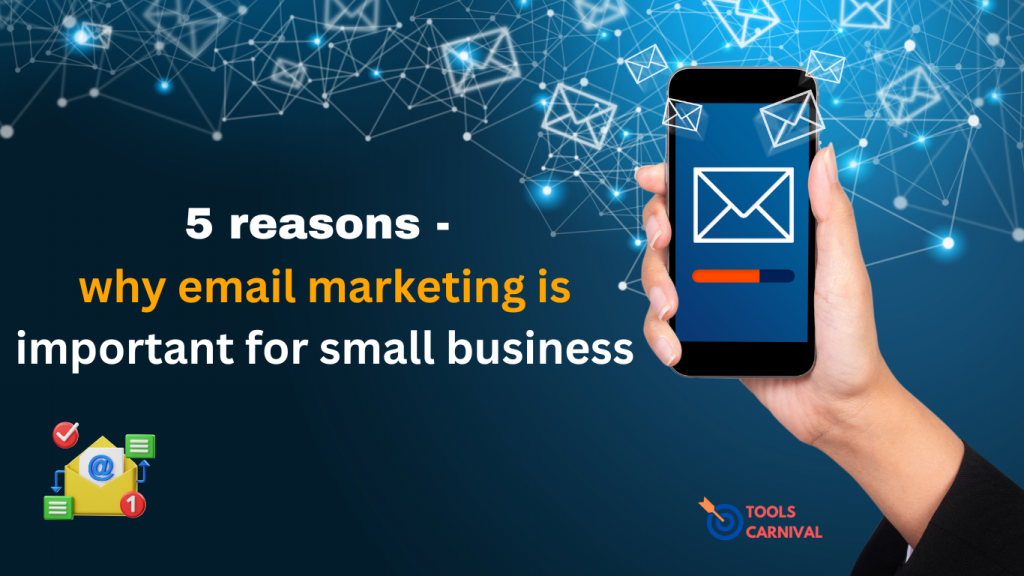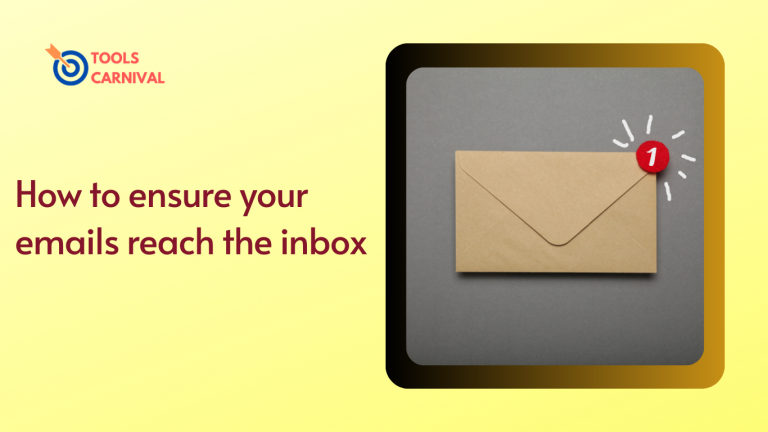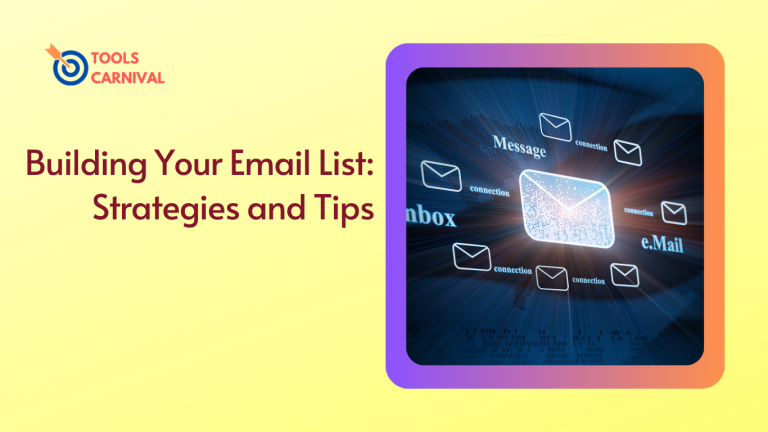5 Reasons Why Email Marketing is Important for Small Business

Written By Masud Parvage ♦ September 21, 2023

Table of Contents
ToggleIntroduction to Email Marketing
Email marketing has become an essential tool for small businesses to effectively connect with their target audience. It allows businesses to engage with customers on a more personal level, deliver relevant content, and build strong customer relationships. In this article, we will explore five compelling reasons why email marketing is important for small businesses.
II. Enhanced Targeting and Personalization
A. Targeted Audience Segmentation
- To effectively engage with customers, small businesses can define customer segments based on preferences and behaviors. This segmentation allows businesses to tailor their email content to specific audience groups for better engagement and conversion.
- By understanding the unique characteristics of each segment, businesses can craft email campaigns that address their specific needs and interests. This targeted approach ensures that customers receive emails that are relevant to their preferences, increasing the chances of positive interactions and conversions.
B. Personalized Email Campaigns
- Personalization is a crucial element in email marketing. By utilizing customer data, small businesses can create customized email experiences that resonate with their audience.
- By addressing customers by name and acknowledging their personal preferences, businesses can establish a genuine connection. This personal touch makes customers feel valued and increases the likelihood of engagement and conversions.
III. Cost Efficiency and High ROI
A. Low Cost of Implementation
- Email marketing is an affordable marketing channel compared to traditional methods. Small businesses can allocate limited budgets to this cost-effective strategy, allowing them to maximize resources and reach a larger audience.
- Unlike expensive TV ads or print campaigns, email marketing provides significant cost savings without compromising its effectiveness. This makes it an ideal choice for small businesses looking to make the most of their advertising budget.
B. High Return on Investment (ROI)
- Email marketing campaigns have shown powerful results when it comes to generating increased sales and revenue. By leveraging customer data and delivering tailored content, small businesses can witness a substantial return on their investment.
- Numerous case studies have highlighted the success of email marketing campaigns, showcasing how businesses have significantly increased their ROI. These success stories serve as inspiration and motivation for small businesses to embrace why email marketing is important for small businesses as a pivotal strategy.
IV. Building and Nurturing Customer Relationships
A. Building an Email Subscriber List
- Growing an email subscriber list is vital for small businesses. There are various effective strategies to collect email addresses and expand the subscriber base.
- Implementing lead magnets, such as free e-books or exclusive discounts, can encourage visitors to subscribe to the email list. Additionally, utilizing opt-in forms on websites and social media platforms can capture the attention of potential customers, leading to increased subscriber numbers.
B. Establishing Trust and Credibility
- Email marketing provides a platform for small businesses to establish themselves as credible and knowledgeable industry experts. Creating engaging content that addresses customer pain points and offers valuable solutions can help build trust and credibility.
- Small businesses can also utilize email campaigns to educate customers about their brand and industry. By sharing valuable insights, tips, and informative content, businesses can position themselves as go-to sources of information and build a strong reputation.
C. Strengthening Customer Loyalty
- Email marketing serves as a powerful tool for fostering customer loyalty. By delivering personalized offers, promotions, and exclusive content to existing customers, small businesses can make them feel appreciated and valued.
- Implementing loyalty programs that reward customer engagement and purchases through email campaigns can further strengthen customer loyalty. These strategies help small businesses retain customers, resulting in increased customer lifetime value and sustained growth.
V. Increasing Website Traffic and Conversions
A. Driving Traffic to Your Website
- Compelling email content can serve as a gateway to drive traffic to small business websites. By incorporating engaging visuals, enticing headlines, and intriguing snippets about why email marketing is important for small businesses, businesses can persuade recipients to click through to their websites.
- Whether it is showcasing new products, announcing exciting updates, or offering exclusive discounts, email marketing can drive targeted traffic to specific landing pages, helping small businesses achieve their conversion goals.
B. Optimizing Landing Pages for Conversions
- Designing persuasive landing pages is crucial for converting website visitors into customers. Small businesses should ensure that their landing pages are visually appealing, user-friendly, and optimized for conversions.
- Through A/B testing, different iterations of landing pages can be tested to identify the most effective design and content elements. This data-driven approach enables small businesses to optimize their landing pages continuously, improving conversion rates and maximizing the impact of their email marketing efforts.
Ready to Skyrocket Your Success?
Take Your Business to New Heights - Discover Growth Strategies Now!
VI. Tracking and Analyzing Campaign Performance
A. Measuring Email Campaign Metrics
- To assess the success of email marketing campaigns, small businesses need to track key metrics. In the realm of statistics, we examine metrics like open rates, click-through rates, conversion rates, and unsubscribe rates. These figures offer valuable insights into the performance of X and its audience engagement.
- why email marketing is important for small businesses tools provide invaluable insights into campaign performance, allowing businesses to gain a comprehensive understanding of audience engagement and the effectiveness of their email content.
B. Interpreting Data to Optimize Results
- Analyzing email campaign metrics can help small businesses identify areas for improvement. By examining open rates, click-through rates, and other relevant data, businesses can make informed decisions and optimize future campaigns.
- Implementing data-driven strategies based on campaign analysis enables small businesses to continuously enhance their email marketing efforts, resulting in improved engagement, conversions, and overall success.
VII. Summary: Harnessing the Power of Email Marketing for Small Businesses
In conclusion, email marketing is important for small businesses and plays a pivotal role in the success of small businesses. Through enhanced targeting and personalization, cost efficiency, building strong customer relationships, increasing website traffic and conversions, and tracking and analyzing campaign performance, small businesses can harness the power of why email marketing is important for small businesses to reach their goals and drive sustainable growth.
VIII. Why email marketing is important for small businesses
- Cost-Effective: Email marketing is an affordable way for small businesses to reach their audience compared to traditional advertising methods.
- Direct Communication: It allows direct communication with customers, building a personal connection and fostering trust.
- Targeted Marketing: Small businesses can segment their email lists to send personalized content to specific customer groups, increasing the relevance of their messages.
- High ROI: Email marketing offers a high return on investment (ROI) when executed effectively, providing a substantial bang for your marketing buck.
- Customer Engagement: It keeps customers engaged and informed about your products, services, and promotions, encouraging repeat business.
- Builds Brand Loyalty: Consistent email communication can strengthen brand loyalty and turn one-time customers into repeat buyers.
- Measurable Results: Email marketing platforms provide data on open rates, click-through rates, and conversion rates, allowing for continuous improvement.
- Automation: Small businesses can use automation to schedule emails, making it easier to maintain a consistent presence without constant manual effort.
- Increases Website Traffic: Email campaigns can drive traffic to your website, boosting online visibility and potentially leading to more sales.
- Competitive Advantage: Utilizing email marketing effectively can give small businesses a competitive edge in their industry by staying top-of-mind with customers.
Frequently Asked Questions (FAQs)
Q. How often should small businesses send marketing emails?
A. The frequency of sending marketing emails can vary but should generally be consistent. Small businesses often send emails weekly, bi-weekly, or monthly. The ideal frequency depends on your audience and the type of content you have to share.
Q. What are some successful approaches to expanding an email subscriber list?
A. Effective strategies include offering incentives like discounts, hosting webinars or events, creating engaging content, and optimizing sign-up forms on your website. Collaboration with complementary businesses can also help attract new subscribers.
Q. Is it essential to customize email content for different customer segments?
A. Yes, customization is crucial. Personalizing content based on customer segments leads to higher engagement and conversion rates. Tailored content resonates better with recipients, addressing their specific needs and interests.
Q. Can email marketing help improve customer retention rates?
A. Absolutely, why email marketing is important for small businesses stands as a superb tool for retaining customers. Sending relevant and valuable content, special offers, and personalized recommendations can keep customers engaged and loyal to your brand.
Q. What are some common challenges faced by small businesses in email marketing?
A. Small businesses often struggle with issues like low open and click-through rates, why email marketing is important for small businesses’ deliverability problems, growing and maintaining a healthy subscriber list, and creating compelling content on a tight budget. However, these challenges can be overcome with proper strategies and tools.
Recommended Reading:
Unlock Exclusive Savings!
Your Lifetime Deals on Tools and Resources Await: Shop Today, Save Forever!



